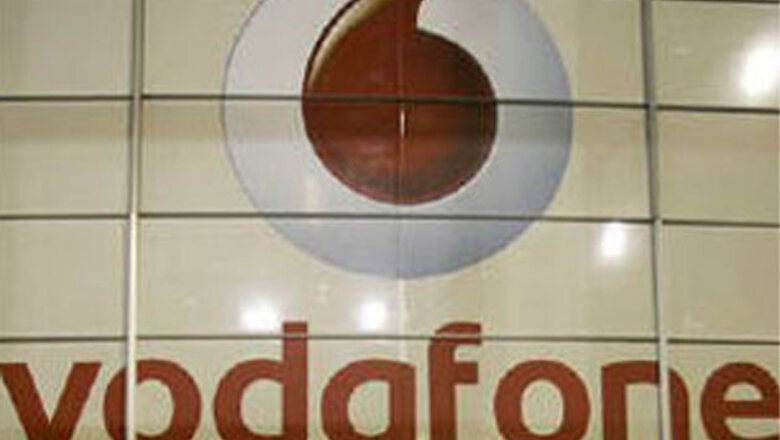
views
New Delhi: British Telecom giant Vodafone, which is contesting the Rs 11,000 tax demand from the income tax department, was today directed by the Supreme Court to deposit Rs 2,500 crore along with a bank guarantee of Rs 8,500 crore before it.
The company, which faced some tough questions by a Bench headed by Chief Justice S H Kapadia, was asked to deposit the amount within three weeks and a bank guarantee within eight weeks before the registry.
"We are asking that before the Assessing Officer did you agree to apply principle of apportionmate liability and that the amount (claimed as tax liability) will not exceed a particular figure," the Bench, also comprising Justices K S Radhakrishnan and Swatanter Kumar, repeatedly asked counsel
and senior advocate Harish Salve, arguing for Vodafone.
When there was no categorical response to the question, the Bench wanted to know from Salve whether the company was prepared to deposit around Rs 2,000 crore during the pendency of the dispute.
"Are you prepare to deposit Rs 2,000 crore. We will give you an early date for hearing of the appeal," the Bench said during the hearing.
Attorney General G E Vahanvati said the issue of apportionmate liability was raised before the Bombay High Court and he suggested that the company should be asked to deposit 50 per cent of the liability during the pendency of
the matter.
He narrated the sequence of events leading to the acquisition of shares of Hutchison Telecommunications International Ltd (HTIL) in Hutchison-Essar India and said HTIL, which has to meet the tax liability, was hiding.
The Attorney General replied in affirmative to the query of the Bench that "was it HTIL which was to file the returns".
He said if the amount liable on the company will be less than the demand raised by the income tax department, the remaining would be returned along with interest.
However, Salve further held that the total tax liability on Vodafone as per their own assesment is Rs 1,330 crores, which includes interest of Rs 559 crores.
This was opposed by Vahanvati, who said that the basic liability on Vodafone is Rs 7,900 crores and they should pay at least Rs 3,500 crores.
Salve submitted that it would be a big amount for Vodafone, as it was a new company in India and was still establishing its operations.
"This would put huge financial burden on the company," said Salve, adding that they can not pay more than Rs 2,000 crore.
On this, the Chief Justice suggested a middle figure and asked Vodafone to submit Rs 2,500 crore before the registry and bank guarantee of any nationalised bank of Rs 8,500.
The Apex Court also said that the government can withdraw this Rs 2,500 crore, but held that if the case goes in favour of Vodafone then the govt will have to return the amount to the telecom giant along with interest.
The apex court would start its final hearing in this matter from February 5, 2011.
The bench also directed Director General of international taxation to file an undertaking before the court that the government would refund the amount along with the interest to Vodafone if the UK-based telecom giant succeeds in the case.
On October 22, the IT department had fixed tax liability of Rs 11,217.95 crore on Vodafone International Holdings BV, treating it as an assessee in default for its failure to deduct tax at source, as required, before making a payment of
USD 11,076 million (about Rs 55,000 crore) to HTIL.
Following the stake transfer in 2007, Hutchison Essar was renamed Vodafone Essar.
Earlier, the apex court had declined to stay the Bombay High Court order and said the relief could be granted only if the company was ready to make part-payment of the tax demand.
It had said it would consider an early hearing on the matter and directed the tax authorities to decide the liabilities of Vodafone within four weeks.
"Pending the hearing and further orders, we direct the TDS officer to decide within four weeks from today on the tax liability," the court had said, asking Vodafone to take further legal recourse after the liability was fixed.
Vodafone has since claimed that no tax is payable by the company and the Indian tax authorities have no right to seek tax, as the transaction was executed outside the country.
Earlier, dismissing the plea of Vodafone, the High Court had held that the I-T department had the jurisdiction to tax the transaction.
Hutchison's telecom business in India comprised a substantial chunk of its overall business and the deal enabled Vodafone to enter the Indian market in a big way.
The High Court, however, gave Vodafone the liberty to argue before the tax department that no penalty should be imposed, as they genuinely believed they had no liability to deduct tax at source while making the payment to Hutchison.



















Comments
0 comment